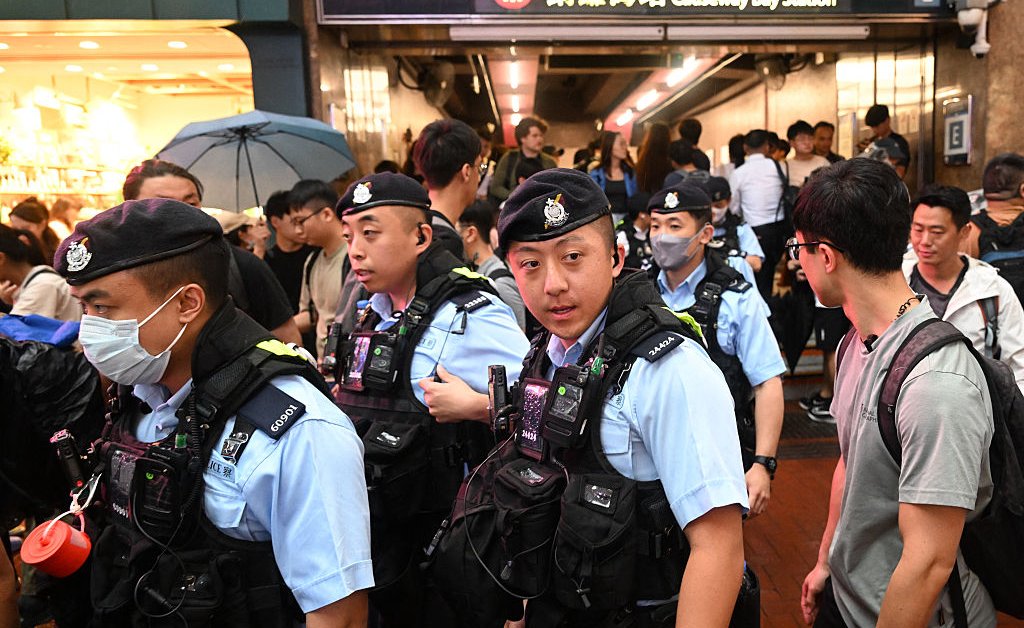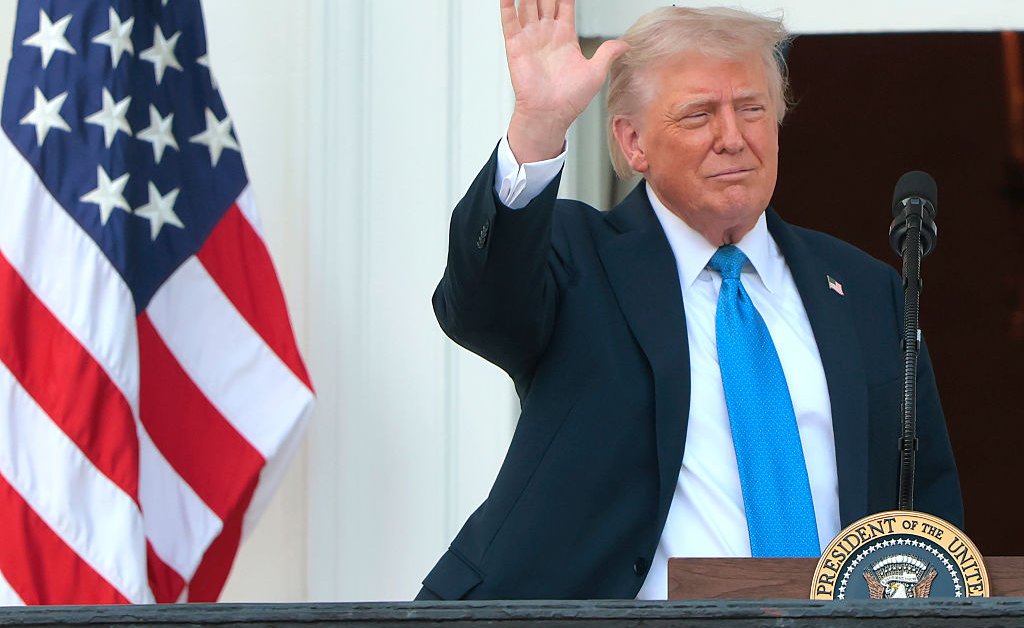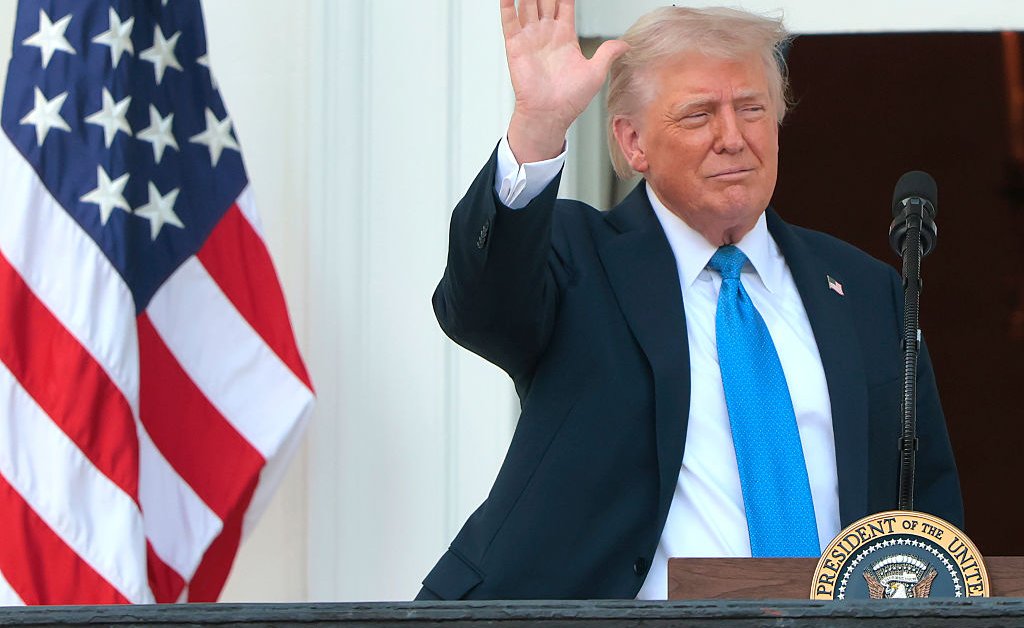The Intensifying Crackdown In Hong Kong: A Test For US Policy

Welcome to your ultimate source for breaking news, trending updates, and in-depth stories from around the world. Whether it's politics, technology, entertainment, sports, or lifestyle, we bring you real-time updates that keep you informed and ahead of the curve.
Our team works tirelessly to ensure you never miss a moment. From the latest developments in global events to the most talked-about topics on social media, our news platform is designed to deliver accurate and timely information, all in one place.
Stay in the know and join thousands of readers who trust us for reliable, up-to-date content. Explore our expertly curated articles and dive deeper into the stories that matter to you. Visit Best Website now and be part of the conversation. Don't miss out on the headlines that shape our world!
Table of Contents
The Intensifying Crackdown in Hong Kong: A Test for US Policy
Hong Kong's autonomy, once a vibrant symbol of "one country, two systems," is rapidly eroding under the increasingly assertive grip of mainland China. This escalating crackdown presents a significant challenge to US foreign policy, forcing a reassessment of its approach to the region and its relationship with Beijing. The situation demands a nuanced understanding of the complexities at play, balancing competing interests and potential consequences.
The Erosion of Hong Kong's Freedoms:
Since the controversial 2019 anti-government protests, Hong Kong has witnessed a systematic dismantling of its freedoms. The imposition of the National Security Law in 2020 effectively criminalized dissent, leading to the arrest and imprisonment of numerous pro-democracy activists, journalists, and lawmakers. This has severely curtailed freedom of speech, assembly, and the press, silencing critical voices and chilling public discourse.
- Political Repression: The dismantling of the pro-democracy opposition has left Hong Kong's political landscape dominated by pro-Beijing figures. Elections are now largely symbolic, lacking genuine competition.
- Erosion of the Rule of Law: Concerns are mounting over the independence of the judiciary and the fairness of trials under the National Security Law. Critics argue that due process is routinely disregarded, undermining the very foundations of Hong Kong's legal system.
- Crackdown on Civil Society: Numerous human rights organizations and NGOs have been forced to close or significantly curtail their operations, fearing reprisals under the broad and vaguely worded provisions of the National Security Law.
The US Response: A Balancing Act:
The United States has responded to the deteriorating situation in Hong Kong with a range of measures, including sanctions targeting Chinese officials and entities deemed responsible for undermining Hong Kong's autonomy. However, these actions have been met with counter-sanctions from China, highlighting the delicate balance the US must strike.
- Economic Sanctions: While sanctions aim to pressure China to respect Hong Kong's autonomy, their effectiveness remains debated. China's economic power and its growing influence in global trade complicate the efficacy of these measures.
- Diplomatic Pressure: The US continues to engage in diplomatic efforts to address the human rights situation in Hong Kong, but these efforts have yielded limited tangible results.
- Support for Hong Kongers: The US has also offered refuge and support to Hong Kong residents fleeing the crackdown, reflecting a commitment to humanitarian concerns. This has involved providing pathways to immigration and offering various forms of assistance.
Implications for US Policy:
The situation in Hong Kong poses a crucial test for US foreign policy. It compels a re-evaluation of its strategy towards China, particularly regarding issues of human rights, economic engagement, and regional stability. Ignoring the escalating repression in Hong Kong would set a dangerous precedent, potentially emboldening China to further suppress dissent in the region. However, overly aggressive actions could escalate tensions and potentially trigger unintended negative consequences.
The path forward requires a carefully calibrated approach, combining targeted sanctions, strong diplomatic pressure, and unwavering support for human rights and democratic values. The international community must remain vigilant and continue to advocate for the preservation of Hong Kong's autonomy and the fundamental freedoms of its people. Failure to do so could have far-reaching implications for regional stability and the global defense of human rights.
Further Reading:
Call to Action: Stay informed about the situation in Hong Kong and advocate for human rights and democratic values. Contact your elected officials to express your concerns and urge them to take action.

Thank you for visiting our website, your trusted source for the latest updates and in-depth coverage on The Intensifying Crackdown In Hong Kong: A Test For US Policy. We're committed to keeping you informed with timely and accurate information to meet your curiosity and needs.
If you have any questions, suggestions, or feedback, we'd love to hear from you. Your insights are valuable to us and help us improve to serve you better. Feel free to reach out through our contact page.
Don't forget to bookmark our website and check back regularly for the latest headlines and trending topics. See you next time, and thank you for being part of our growing community!
Featured Posts
-
 The Stakes Are High Trumps Climate Change Crackdown This Summer
Jul 02, 2025
The Stakes Are High Trumps Climate Change Crackdown This Summer
Jul 02, 2025 -
 Analyzing The Meaning Behind Death Stranding 2s On The Beach Ending
Jul 02, 2025
Analyzing The Meaning Behind Death Stranding 2s On The Beach Ending
Jul 02, 2025 -
 From Underdog To Icon Examining Taylor Jenkins Reids Publishing Dominance
Jul 02, 2025
From Underdog To Icon Examining Taylor Jenkins Reids Publishing Dominance
Jul 02, 2025 -
 This Summers Climate Fight Trumps Actions And Their Consequences
Jul 02, 2025
This Summers Climate Fight Trumps Actions And Their Consequences
Jul 02, 2025 -
 Report Chris Pauls Free Agency Narrows Down To Two Previous Teams
Jul 02, 2025
Report Chris Pauls Free Agency Narrows Down To Two Previous Teams
Jul 02, 2025
Latest Posts
-
 Hershey Biopic Unveils First Look At Stars Finn Wittrock And Alexandra Daddario
Jul 03, 2025
Hershey Biopic Unveils First Look At Stars Finn Wittrock And Alexandra Daddario
Jul 03, 2025 -
 Love Island Usa Season 7 Understanding Pepe Garcias Role
Jul 03, 2025
Love Island Usa Season 7 Understanding Pepe Garcias Role
Jul 03, 2025 -
 Call Of Duty Mobiles New Double Cod Points Event Date Rewards Confirmed
Jul 03, 2025
Call Of Duty Mobiles New Double Cod Points Event Date Rewards Confirmed
Jul 03, 2025 -
 Update Vance Boelter Suspected Shooter At Minnesota Capitol Captured
Jul 03, 2025
Update Vance Boelter Suspected Shooter At Minnesota Capitol Captured
Jul 03, 2025 -
 New Photos Released From The Hershey Biopic Filming In W Pa
Jul 03, 2025
New Photos Released From The Hershey Biopic Filming In W Pa
Jul 03, 2025
